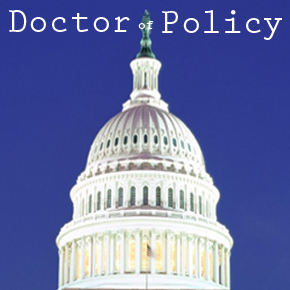Just last month, the Supreme Court issued a ruling declaring bans on same-sex marriage illegal. While many hail this as a major step in the quest for equality, equity in health outcomes is still lacking in the lesbian, gay, bisexual, and transgender community. Many clinicians and prospective clinicians do not receive significant training in how to address the unique needs of members of the LGBT population.
As an ally and future clinician, I seek to understand health disparities and how I can better help all of my patients. As such, I put together a list of some major health concerns in the LGBT community. Although this list is not comprehensive, it is the beginning of what I hope to be a series on these disparities and how we can address them through policy and practice, making health outcome equality our next frontier.
1. Mental health: Members of the LGBT community, particularly trans* individuals, are known to experience higher rates of mental health conditions including generalized anxiety, depression, substance use disorders and suicidal ideation. Much of this is associated with increased levels of perceived discrimination.
2. Sexual health: LGBT individuals are also susceptible to sexually transmitted infections including HIV, but face additional stigma and barriers when seeking treatment. Additionally, clinicians may not be sure how to ask questions about relationship satisfaction and intimate partner violence among LGBT community members.
3. Cancer: Particularly among gender non-conforming and trans communities, individuals may not receive a comprehensive set of cancer screenings for their sex assigned at birth. This is problematic because this can delay detection and referral to treatment for different cancers.
4. Lack of informed clinicians: Medical students often learn to ask if a patient’s sexual partners include males, females, or both, but are not educated on particular aspects of LGBT health ranging from mental health to interacting with the health care system. As a consumer in the health care system, I appreciate when my clinicians are not only impartial in listening to my responses, but also have a certain social awareness of what may influence my words. This becomes more challenging in LGBT health because of the lack of training on proper terminology, cultural competency, and largely, I think, because of a fear of saying “the wrong thing.”
So what can we do? As medical students, there are a few things we have in our power:
1. Our voices: We can use our voices to advocate for more comprehensive education. It is particularly helpful to also solicit input from any members of the LGBT community in our institutions, because their lived experience is invaluable to our understanding of how to be better clinicians — and better allies.
2. Our own education: There are many online resources and trainings you can do to become more knowledgeable about everything from terminology surrounding gender identity, sex and sexual orientation. In addition, you can arm yourself with information on LGBT health disparities, inclusive language and policies local to your area. If you’re overwhelmed or confused about where to start, here are a few of the resources I have used in the past:
- Definitions pertaining to sex, gender
- What is LGBT?
- Trans* Health
- Understanding and Eliminating Health Disparities
3. Ask questions: I am the first to admit that I do not and can not know everything about anyone’s health. When in doubt, ask someone, explaining your purpose. Many people will respond positively to a well-intentioned question because they want you to be knowledgable as well.
Doctor of Policy is a column dedicated to exploring and challenging contemporary health policy issues, especially in the fields of behavioral health, health care access, and inclusion, all from the eyes of a public health girl in a basic sciences world.

